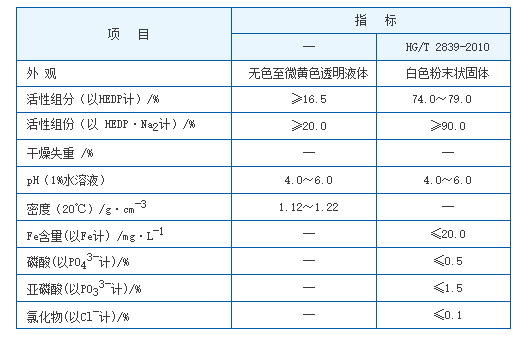Gor . 11, 2024 11:58
Back to list
Importance of scale inhibitor in the treatment of water for industrial processes.
Scale inhibitor is an important component in water treatment systems to prevent the formation of scale deposits in pipelines, boilers, and other equipment. Scale inhibitors work by disrupting the crystallization process of mineral salts such as calcium carbonate, calcium sulfate, and barium sulfate, which are commonly found in water sources.
Scale deposits can cause a variety of problems in water treatment systems, including reduced flow rates, decreased heat transfer efficiency, and increased energy consumption. In boilers, scale build-up can lead to overheating, corrosion, and ultimately, mechanical failure. In pipelines, scale deposits can restrict the flow of water and increase pressure drop, leading to increased pumping costs.
The use of scale inhibitors in water treatment systems is essential to ensure the efficient operation of equipment and maintain water quality standards. Scale inhibitors are typically added to the water in small concentrations, where they can effectively prevent the formation of scale deposits by either capturing mineral ions or by inhibiting their crystallization.
There are several types of scale inhibitors available for use in water treatment systems, including organic and inorganic inhibitors. Organic inhibitors are derived from synthetic polymers or natural compounds and work by adsorbing onto mineral surfaces to inhibit the growth of scale crystals

scale inhibitor water treatment. Inorganic inhibitors, on the other hand, work by forming complexes with mineral ions to prevent their crystallization. The selection of a suitable scale inhibitor for a water treatment system depends on a variety of factors, including the type of water source, the composition of mineral salts, and the operating conditions of the equipment. It is important to conduct water quality testing and consult with a water treatment specialist to determine the most effective scale inhibitor for a particular application. In addition to preventing scale deposits, scale inhibitors can also help to improve the efficiency of water treatment systems by reducing the frequency of maintenance and cleaning. By inhibiting the formation of scale deposits, scale inhibitors can help to extend the lifespan of equipment and reduce operating costs. Overall, scale inhibitors play a crucial role in water treatment systems by preventing the formation of scale deposits and ensuring the efficient operation of equipment. By selecting the appropriate scale inhibitor and maintaining proper water treatment practices, system operators can effectively manage scale-related issues and optimize the performance of their water treatment systems.

scale inhibitor water treatment. Inorganic inhibitors, on the other hand, work by forming complexes with mineral ions to prevent their crystallization. The selection of a suitable scale inhibitor for a water treatment system depends on a variety of factors, including the type of water source, the composition of mineral salts, and the operating conditions of the equipment. It is important to conduct water quality testing and consult with a water treatment specialist to determine the most effective scale inhibitor for a particular application. In addition to preventing scale deposits, scale inhibitors can also help to improve the efficiency of water treatment systems by reducing the frequency of maintenance and cleaning. By inhibiting the formation of scale deposits, scale inhibitors can help to extend the lifespan of equipment and reduce operating costs. Overall, scale inhibitors play a crucial role in water treatment systems by preventing the formation of scale deposits and ensuring the efficient operation of equipment. By selecting the appropriate scale inhibitor and maintaining proper water treatment practices, system operators can effectively manage scale-related issues and optimize the performance of their water treatment systems.
Share
Latest news
-
Water Treatment with Flocculant Water TreatmentNewsJun.12,2025
-
Polymaleic AnhydrideNewsJun.12,2025
-
Polyaspartic AcidNewsJun.12,2025
-
Enhance Industrial Processes with IsothiazolinonesNewsJun.12,2025
-
Enhance Industrial Processes with PBTCA SolutionsNewsJun.12,2025
-
Dodecyldimethylbenzylammonium Chloride SolutionsNewsJun.12,2025





